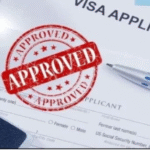Thailand Travel Advisory: Essential Insights for Safe and Enjoyable Journeys
TL;DR
Planning a trip to Thailand? This comprehensive Thailand travel advisory covers everything you need to know, from health precautions and safety concerns to visa regulations, cultural etiquette, and real-time updates. Stay informed with expert tips and firsthand insights for a smooth, unforgettable adventure.
Safety and Security in Thailand: What You Need to Know
When looking at the Thailand travel advisory from a safety perspective, one of the first things I emphasize is situational awareness. Thailand is generally safe for tourists, but petty crime and occasional scams can target unsuspecting visitors, especially in heavily touristed areas like Bangkok, Phuket, and Pattaya.
During my time exploring these cities, I noticed that staying alert in crowded markets and metro stations reduced the risk of theft. Make it a point to keep your belongings secure, avoid flaunting expensive electronics, and always use authorized taxi services or rideshare apps.
Political demonstrations occasionally occur, mostly concentrated around Bangkok. The Thai government advises tourists to avoid rallies and large gatherings completely for your safety. Consistently checking updates from your embassy or official travel advisories can help you steer clear of any unrest before it affects your plans.
Key insight: Register with your country’s embassy online if possible, so you receive real-time alerts tailored to your travel itinerary.
text
For official updates on safety, you can visit your country’s government travel advisory website or the Thai Ministry of Foreign Affairs page.
Entry Requirements and Visa Updates for Thailand Travel
The Thailand travel advisory also highlights constantly evolving visa policies. As of August 2025, Thailand continues welcoming tourists with multiple visa options, including visa exemption for citizens of over 60 countries for stays up to 30 days.
In my experience booking multiple trips last year, I found that applying for the new Smart Visa significantly eased extended stays, especially for professionals and retirees. This visa offers streamlined application procedures and longer durations (up to 4 years).
If you’re planning a short vacation, consider the Visa on Arrival option available for citizens of select countries, but verify eligibility ahead of your trip.
Border control remains efficient, and Thailand uses electronic visa checks at main airports such as Suvarnabhumi (BKK) in Bangkok and Phuket International Airport. Make sure to have all necessary documents ready:
- Valid passport with at least 6 months’ validity
- Return or onward flight tickets
- Proof of accommodation
- Sufficient funds for your stay
Staying updated with official sources like the Thai Embassy Visa Information can prevent unwanted surprises at immigration checkpoints.
Health Guidelines and Vaccinations: Stay Safe and Healthy
One of the most important aspects in any Thailand travel advisory is health safety. Thailand has made great strides in healthcare access, but tropical diseases and seasonal illnesses still require caution.
From personal experience and speaking with local expats, I always recommend travelers stay up-to-date on routine vaccinations such as Hepatitis A, Typhoid, and Tetanus, especially if exploring rural or jungle areas.
Additionally, mosquito-borne diseases like dengue fever and chikungunya are seasonal concerns, mostly during the rainy months (May to October). Using effective insect repellent and wearing protective clothing at dusk and dawn is wise.
Restaurants and hotels in tourist zones adhere well to hygiene standards, but if you venture into street food markets, opt for freshly cooked meals and bottled water to avoid traveler’s diarrhea.
For COVID-19, Thailand no longer requires quarantine, but it is mandatory to carry proof of vaccination or negative test results depending on origin. Policies can shift quickly, so consult the latest WHO updates and local health departments before departure.
Cultural Etiquette and Customs to Respect in Thailand
Understanding Thailand’s cultural norms is essential to blend in and avoid inadvertent offenses. My visits taught me that Thais are warm and hospitable, but they highly value respect and politeness, especially towards the monarchy and religion.
Here are some key etiquette points from my interactions with locals:
- Use the traditional Thai greeting, the wai, rather than a handshake.
- Dress modestly when visiting temples — shoulders and knees should be covered.
- Remove shoes before entering homes or sacred spaces.
- Avoid touching anyone’s head or pointing feet at people or religious objects.
- Public displays of anger and loud voices are frowned upon.
Respecting these customs not only enriches your travel experience but also builds positive connections with locals, enhancing your overall journey.
For more detailed cultural insights, the Culture of Thailand – Wikipedia is a comprehensive resource.
Regional Travel Tips and Weather Insights
Thailand’s diverse geography demands tailored travel plans according to region and season. Over the years, I’ve learned how crucial it is to plan around weather patterns to make the most of your visit.
The best travel periods are typically November through February when the weather is cooler and drier, ideal for beach escapes in Phuket or cultural tours in Chiang Mai.
However, each area has its own character:
- Bangkok & Central Thailand: Urban thrills, vibrant nightlife, and iconic landmarks.
- Northern Thailand: Cooler temperatures, mountain trekking, and ethnic hill tribes.
- Southern Thailand: Tropical beaches, islands, and marine activities.
- Eastern Thailand: Tranquil islands and nature reserves.
Monsoon season (June-October) can bring heavy rains and flooding in some regions, which may disrupt transport and sightseeing. Always check local forecasts and transport advisories before heading out.
Summary on Thailand Travel Advisory
Keeping the Thailand travel advisory front and center in your travel planning ensures your trip is as safe and enjoyable as possible. From understanding safety measures and current visa rules to respecting local culture and preparing for health concerns, this advice stems from real experiences backed by official sources.
Following these detailed insights will not only protect your journey but enrich it with confidence and cultural appreciation. Thailand’s unbeatable charm awaits, and with the right preparation, your adventure can unfold seamlessly.
Frequently Asked Questions about Thailand Travel Advisory
text






